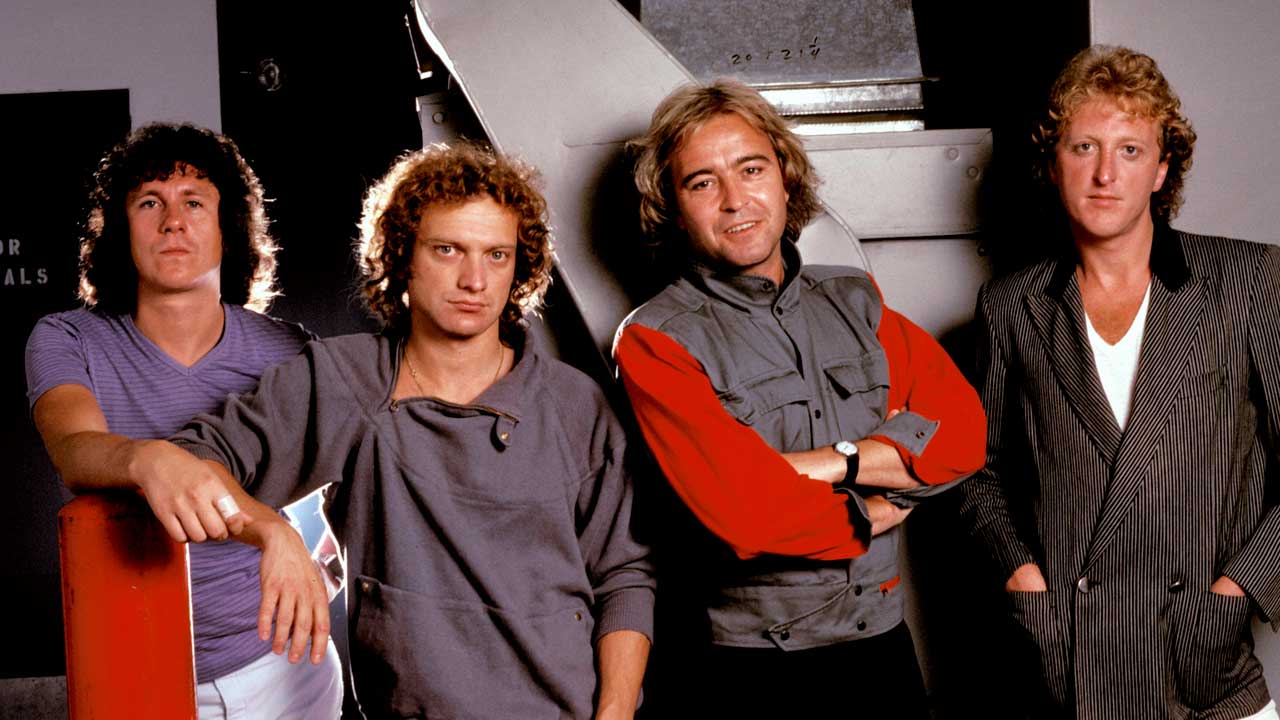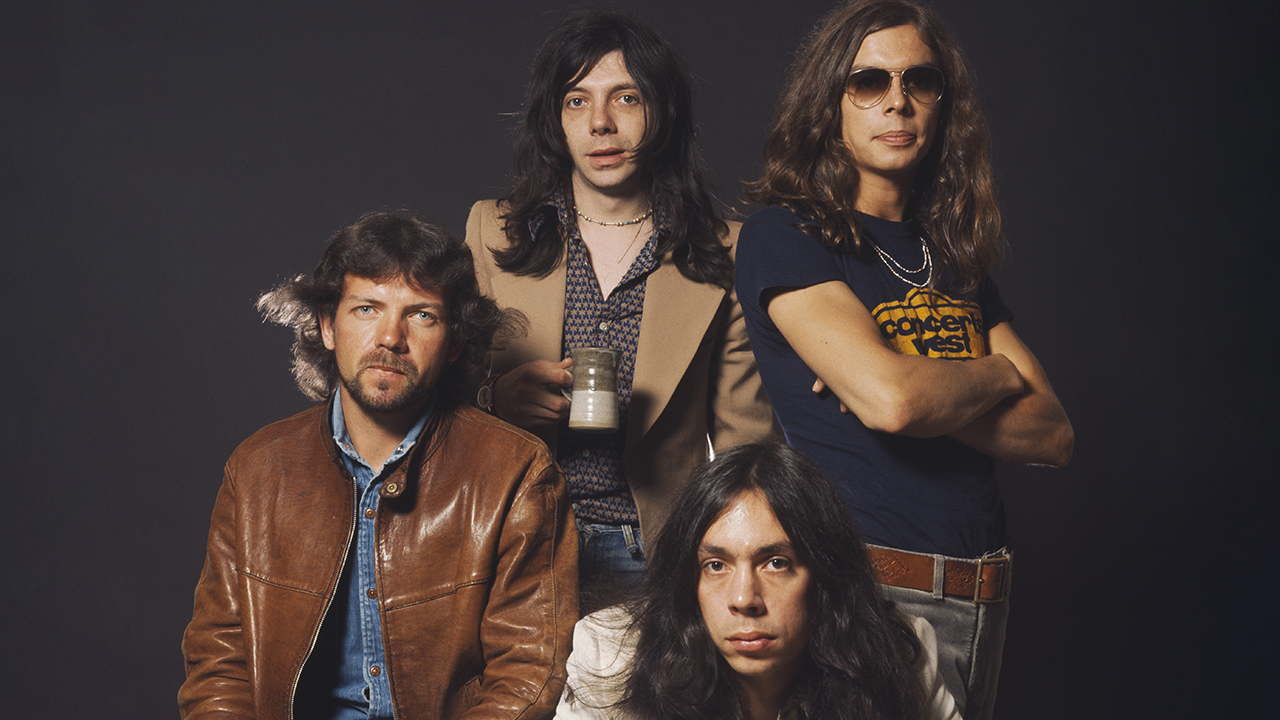"He'll tell you I pushed him more than I needed to, and he's probably right": Mick Jones looks back at the Foreigner single that helped invent the 80s
Mick Jones reveals how Mutt Lange and a young British keyboard wizard helped steer Foreigner out of a difficult time

Mick Jones isn’t the sort of man who usually lets himself be bullied into things. The genteel Englishman’s aristocratic air hides a steeliness that helped him rise from hired gun in the 60s to leader of one of the biggest rock bands of the late 70s and early 80s. But when producer Mutt Lange demanded in the summer of 1980 that Jones play him all the ideas he had for his band Foreigner’s fourth album, the guitarist decided to comply.
“I’d never done that before, but I sat down and played him this tape of stuff I had, even though it was all unfinished,” Jones says today. “There was one little idea on there that I thought sounded like The Shadows, but he went: ‘What’s that?’ I didn’t think it was much, but he spotted it right away. It ended up being the intro to Urgent.”
That song would become a pivotal one for Foreigner. The first single from 1981’s unit-shifting juggernaut 4, it helped revitalise the band after a shaky couple of years. The track’s electronic heartbeat, jabbing saxophone and power-dressed production didn’t just reinvent the AngloAmerican group for the new decade, it also helped usher in one of the signature sounds of the 1980s. This was yuppie rock before the yuppie had even been invented.
It had been half a decade since Portsmouth-born Jones put Foreigner together in New York. The band rocketed out of the gate with 1977’s self-titled debut and the following year’s Double Vision, but stumbled on their third album, Head Games. It had failed to match its predecessors’ commercial success, and internal tensions had precipitated the departure of multi-instrumentalist Ian MacDonald and keyboard player Al Greenwood.
“It was hard going into the fourth album,” says Jones, who would replace both ex-colleagues with an assortment of session musicians. “It was tough getting rid of the guys, but it gave us focus.”
The stakes were high for Foreigner, which is why Jones opted to bring in Mutt Lange to co-produce the record. Lange was the man of the moment after working on AC/DC’s Back In Black, which was well on its way to becoming one of the biggest-selling albums of all time. But he was a notorious ball-buster whose modus operandi was simple: ‘My way or the highway.’ For Jones, it was a culture shock.
“I knew he was a taskmaster, and we did clash,” says Jones, “but I thought we could work together well. And we did.”
Sign up below to get the latest from Classic Rock, plus exclusive special offers, direct to your inbox!
Foreigner entered New York’s Electric Lady Studios with Lange in the autumn of 1980, the start of a recording process that would end up taking 10 long months. Jones was meticulous in his approach to production, but he had nothing on Lange. “Oh, he was intense,” Jones says now.
That intensity even spilled over to the table-football competitions that broke up the long sessions. “It’s how we unwound. We were all very competitive, but Mutt was the most competitive of all,” Jones says, laughing.
The guitarist had worked up his Shadows-style intro into a full song, and brought in British keyboard wunderkind Thomas Dolby to help flesh it out. He had been introduced to Dolby by Mutt Lange, and the pair encouraged the young electronics wizard to experiment. "We'd leave him in the studio for an hour or two to while we went get a drink, then come back to hear what he’d done," says Jones. "And nine times out of ten it would be great."
Jones had written a set of lyrics inspired by the Rolling Stones. “I could imagine Mick Jagger singing something like: ‘You’re not shy, you get around/You wanna fly, don’t want your feet on the ground.’”
But Foreigner had something even better: Lou Gramm. The singer was a blue-eyed soul belter with a voice like honey and sandpaper. “I really pushed Lou on that record,” Jones says now. “He’ll tell you I pushed him more than I needed to, and he’s probably right. But I got a brilliant performance out of him.”
He did. But it wasn’t just Gramm’s voice that made Urgent stand out. Rather than a traditional guitar solo, Jones wanted a sax break in the song. Jones was a longstanding fan of saxophonist Junior Walker, leader of the Motown group Junior Walker & The All Stars. By pure coincidence, he noticed that Walker was playing the Lone Star club a few blocks away from the studio where the band were in the middle of recording the song.
“We went down to see him play, and his son arranged for a meeting afterwards,” Jones says. “He had no idea who we were.”
Still, Walker didn’t take much persuading to play on the track, and laid down a couple of pugnacious riffs before jumping on to the solo.
“We did a couple of takes with him. It was mellow, kind of smooth,” Jones recalls. “I told him: ‘Can you do what you usually do?’ And he went: “Ah, you want me to play the old shit.’”
Walker did indeed play “the old shit”, in the shape of a blazing solo that kicked in two minutes and 55 seconds into the track. Foreigner weren’t the first rock band to deploy a sax – David Bowie, Gerry Rafferty, Aerosmith and Supertramp were among those who had utilised one, while the E Street Band’s Clarence Clemons pretty much owned the road – but no one had made it sound so, well, urgent.
“We’d pieced together the solo on the studio version from four different takes,” Jones explains. “Junior came and played it on stage with us in New York once. He nailed it absolutely. I think he’d listened to the record once.”
The album was finally finished in the late spring of 1981, and Urgent was released as its first single in June of that year. After the relative failure of predecessor Head Games, it was an instant corrective, reaching No.4 on the Billboard chart and paving the way for the blockbuster ballad Waiting For A Girl Like You.
But its real influence was subtle but long-lasting. The sound that Jones and Lange had cooked up would echo down the decade. The likes of ex-Eagles frontman Glenn Frey, Kenny ‘Danger Zone’ Loggins and countless others took Urgent’s template, decked it out in baggy, wide-shouldered suits and took it to the top of the charts over the next few years.
Today, Mick Jones is the only remaining member of the line-up that recorded Urgent, but the song remains a staple of Foreigner’s set. “It wasn’t our biggest hit,” says Jones, “but it’s one of my favourite songs. That whole period was hard, but it refocused us.”
The latest leg of Foreigner's Feels Like the Last Time Farewell Tour begins in March. They also hit the road this summer with Styx and John Waite on the Renegades & Juke Box Heroes tour. Tickets are on sale now. This feature originally appeared in Classic Rock 257, in January 2019.
Dave Everley has been writing about and occasionally humming along to music since the early 90s. During that time, he has been Deputy Editor on Kerrang! and Classic Rock, Associate Editor on Q magazine and staff writer/tea boy on Raw, not necessarily in that order. He has written for Metal Hammer, Louder, Prog, the Observer, Select, Mojo, the Evening Standard and the totally legendary Ultrakill. He is still waiting for Billy Gibbons to send him a bottle of hot sauce he was promised several years ago.

